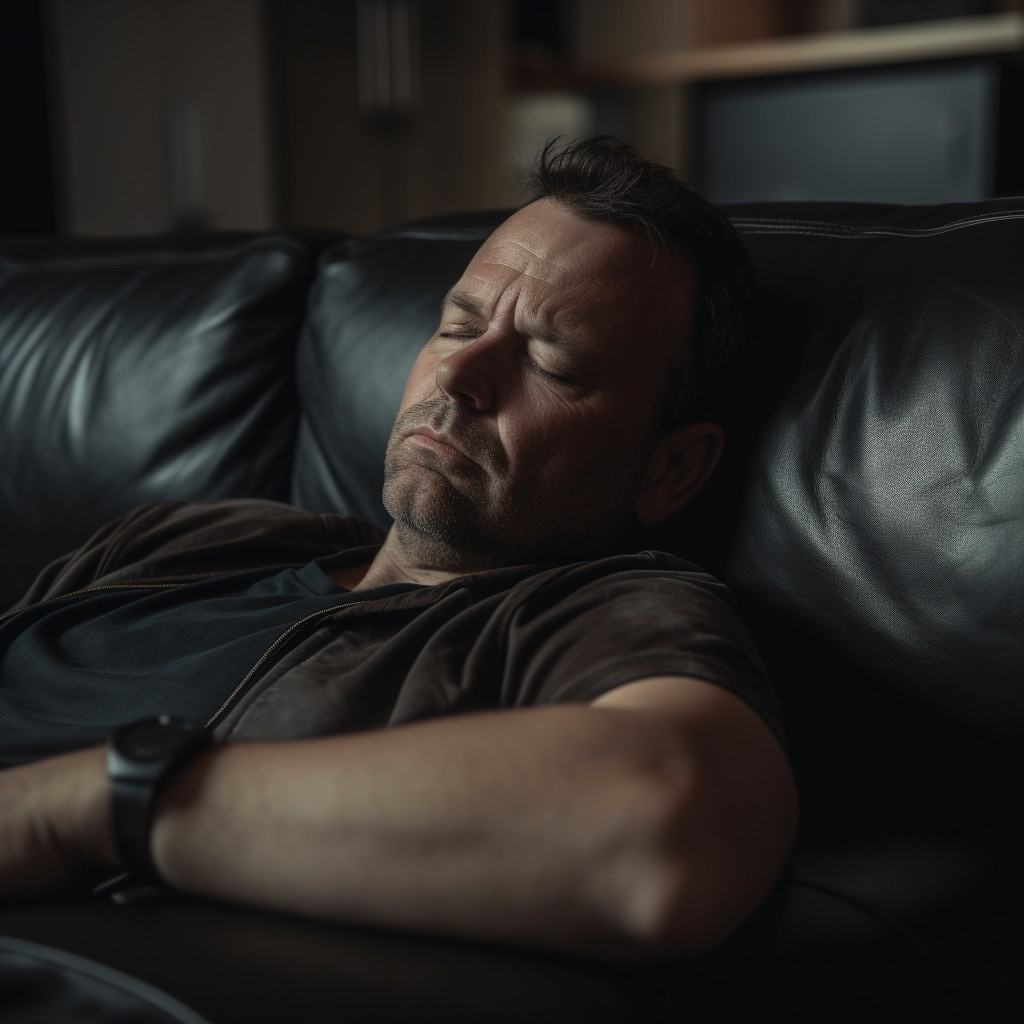Testosterone Replacement Therapy (TRT)
Online telemedicine visits from the comfort of your home. How it WorksFree 15-Minute Consultationfeel better | look better | live better
Don't Let Low Testosterone Derail Your Life
Testosterone is more than just a sex hormone. It also plays a significant role in health and longevity. Obesity, stress, chronic diseases, and aging can all affect testosterone levels. Testosterone Replacement Therapy (TRT) is a long-term treatment that can help to mitigate the life-altering effects and symptoms of Low T and get you back on track.
Understanding Low Testosterone Symptoms:
Experiencing symptoms you can’t explain? They could be signs of low testosterone. Low testosterone can present subtly through a range of symptoms, often mistaken for stress, or chalked up as part of the natural aging process.
Recognizing these signs of low testosterone is the first step toward getting back on track:
Fatigue / Reduced energy
Lack of Drive
Moodiness, anxiety, depression
Decreased muscle mass
Increased body fat
Insulin Resistance
Decreased bone density
Difficulty with memory and concentration
Sleep disturbances


The Benefits of Testosterone Replacement Therapy (TRT):
If your testosterone is low, TRT can help mitigate symptoms, getting you back on track. Patients report results like:
- More energy
- Improved mental clarity
- More confidence
- Reduced anxiety, depression, mood swings
- Better recovery from workouts
- Easier time building muscle
- Easier time losing fat
- Stronger sex drive
- Improved sexual performance
- Improved insulin sensitivity
- Better sleep
“Testosterone makes effort feel good.”
Are You Experiencing Symptoms of Low Testosterone?
Discover if you might benefit from Testosterone Replacement Therapy with our brief online questionnaire. Simply respond to a few questions about how you’ve been feeling lately.
*Please note: This assessment is designed to offer insights, not to serve as a substitute for professional medical advice. Accurate diagnosis of low testosterone levels necessitates blood tests and consultation with an experienced healthcare provider.
TRT FAQ
Is Testosterone Replacement Therapy right for me?
Deciding whether to begin TRT is a highly personalized choice that should be made in collaboration with a healthcare provider. This decision depends on a thorough evaluation of your symptoms, testosterone levels, and overall health, including lifestyle, diet, and medical history. Symptoms of low testosterone can be vague and may result from other health issues. In some cases, low testosterone can be addressed through lifestyle changes. TRT should be considered when low testosterone is confirmed to be the root cause of your symptoms and cannot be corrected through other means.
What advantages does TRT offer?
Testosterone Replacement Therapy aims to restore normal testosterone levels in men who are unable to produce sufficient amounts naturally. The benefits of TRT can include improved mental clarity, increased energy, enhanced mood, and better immune function. Additionally, TRT can support bone density and help protect against diseases associated with aging, with improvements in physical health and performance. However, it's essential to combine TRT with a healthy lifestyle, including proper diet and exercise, to maximize its positive effects and minimize potential side effects.
What dosage of testosterone is appropriate?
The appropriate dosage of testosterone varies from person to person and should be determined based on blood tests and symptoms, in consultation with a healthcare provider. Generally, doses range from 100-250 mg per week, but individual needs can vary significantly. Starting with a conservative dose and gradually adjusting it allows the body to adapt and reduces the risk of side effects. It's also advisable to divide the weekly dose into multiple injections to maintain stable hormone levels.
What is the proper method for administering TRT injections?
TRT injections are typically administered intramuscularly using a small-gauge insulin needle, such as a 27-29g. Common injection sites include the lateral deltoid (shoulder) or ventrolateral (hip) muscle. Proper technique involves inserting the needle fully into the muscle to ensure the testosterone is effectively absorbed. While the process can be intimidating for beginners, with practice and proper guidance from a healthcare provider, it quickly becomes second nature.
How frequently should I administer TRT injections?
The frequency of TRT injections depends on the type of testosterone used and individual needs. To maintain stable hormone levels and minimize side effects, injections are typically administered at least twice a week. Some individuals may benefit from more frequent injections, such as three times a week or even daily, to achieve optimal results. The goal is to keep testosterone levels as stable as possible, avoiding peaks and troughs that can lead to unwanted symptoms.
Are subcutaneous injections an option for testosterone administration?
Subcutaneous injections, which involve injecting testosterone into the fat layer beneath the skin, are an alternative to intramuscular injections. They offer the benefit of being less painful and may be more convenient for some men. However, not everyone absorbs testosterone effectively with this method, which can lead to inadequate hormone levels and the recurrence of symptoms. It's often recommended to start with intramuscular injections and explore subcutaneous options later if desired and if absorption is sufficient.
Can topical creams be used instead of injections for TRT?
Topical testosterone creams are a viable alternative to injections for those who prefer not to use needles. Creams can offer additional benefits, such as increased conversion to DHT, which can enhance androgenic effects. They are also less likely to cause unwanted effects such as water retention and other negative effects in those who are overweight and/or insulin resistant. However, creams require specific compounding to be effective and must be applied consistently, usually to a clean, shaved area like the scrotum. Individuals may start with injections and switch to creams to determine which method best suits their needs.
Can oral testosterone be used instead of injections or creams for TRT?
Yes, oral testosterone, like KYZATREX (testosterone undecanoate), can be an effective alternative to injections or creams for testosterone replacement therapy (TRT). It offers the convenience of a daily oral capsule without the need for needles or messy applications. KYZATREX delivers steady testosterone levels, making it a good option for men who prefer a non-invasive form of TRT. While peak testosterone levels may not be as high as with injections or compounded creams, KYZATREX provides stable and effective treatment for most men. Your specific needs and symptoms should guide the choice of treatment, and we can help determine the best option for you. Read more about KYZATREX here.
How can I manage estrogen-related side effects on TRT?
As the body adjusts to increased hormone levels, some individuals may experience unwanted effects, especially in the initial stages of TRT. Most of these effects self-resolve over time. To manage these unwanted effects, increasing injection frequency may be considered to stabilize hormone levels. Losing body fat and decreasing alcohol consumption will also help lessen these unwanted effects as your body adapts over the initial months of treatment. In some cases, a topical cream may also help reduce side effects.
To support hormonal balance, it is crucial to maintain a healthy diet and body fat level, engage in regular exercise, and minimize alcohol consumption.
Can TRT lead to the development of gynecomastia?
Gynecomastia, or the development of breast tissue in men, is not directly caused by testosterone itself. However, TRT can exacerbate pre-existing conditions if there are imbalances in hormone levels. Factors such as genetic predispositions, previous steroid use, and poor lifestyle choices can contribute to gynecomastia. If this condition develops during TRT, it's important to consult a healthcare provider for proper management. Surgical intervention may be necessary for long-term resolution if lifestyle changes and adjustments to TRT are insufficient.
What impact does TRT have on fertility?
TRT can reduce sperm production, potentially affecting fertility in some men. However, it does not necessarily lead to permanent infertility. For those concerned about fertility, it's important to discuss options with a healthcare provider before starting TRT. Fertility can often be restored using specific protocols that include hormones like HCG and FSH. If having children is a priority in the near future, delaying TRT until after conception may be advisable.
Are additional medications necessary when undergoing TRT?
While TRT itself does not inherently require additional medications, some individuals may benefit from supplemental treatments based on their health profile. Factors such as existing medical conditions, lifestyle, and overall health can influence the need for ancillary medications.
Depending on your specific health needs, these could include options such as Pregnenolone, DHEA, Thyroid support, Melatonin, HCG, GLP-1 agonists, Tadalafil, Telmisartan, Metformin, Glutathione, etc.
Is TRT a lifelong commitment?
For many individuals, TRT is a long-term or lifelong treatment, especially when dealing with irreversible hypogonadism. The treatment suppresses natural testosterone production, so stopping TRT can lead to uncomfortable withdrawal symptoms and a return to a hypogonadal state. While recovery of natural hormone production is possible, it can be a slow and imperfect process. Therefore, it's crucial to understand the long-term nature of TRT and consider its implications carefully before starting treatment.
We get it. Traditional healthcare can be frustrating.
Trying to optimize your health within the traditional sick-care system is an uphill battle, with providers who are difficult to access and don’t have time to listen. Let Men’s Healthspan guide you out of the healthcare vortex.
We listen. We care. We will get to the root cause of your symptoms.
Whether you’re looking to boost your energy, improve your performance, or just feel better, we’re here to guide you every step of the way.
Online Consultations
No more crowded waiting rooms. Virtual visits from the comfort of your home.
Personalized Plans
No cookie-cutter approaches here. We treat the patient, not the numbers. Together we will formulate a customized plan to meet your needs.
Medications Shipped to Your Home
Going to the pharmacy is a hassle. We’ll have your Prescription Medications sent directly to you.
How it works.
Our process is simple, affordable, and proven.
Are you ready to take the first step towards optimal health and living your best life?
Intake Forms and Labs
Complete the online medical forms and get your comprehensive bloodwork order.
Take your order to a local lab, or have a mobile phlebotomist come to you.
Telehealth Call
Comprehensive online telemedicine visits, where we'll dive into your health history and discuss your goals to create a custom plan just for you.
Medication Delivery
Prescriptions shipped directly to your door.
Convenience is key to making healthy choices easier.
With Men’s Healthspan, you’ll have the support and guidance to take control of your health and reclaim your vitality. Let’s work together to unlock your full potential.
Still have questions before you get started?
We know your time is valuable, which is why we offer a no-pressure, no-obligation 15-minute consultation to determine if our programs are the right fit for you.
